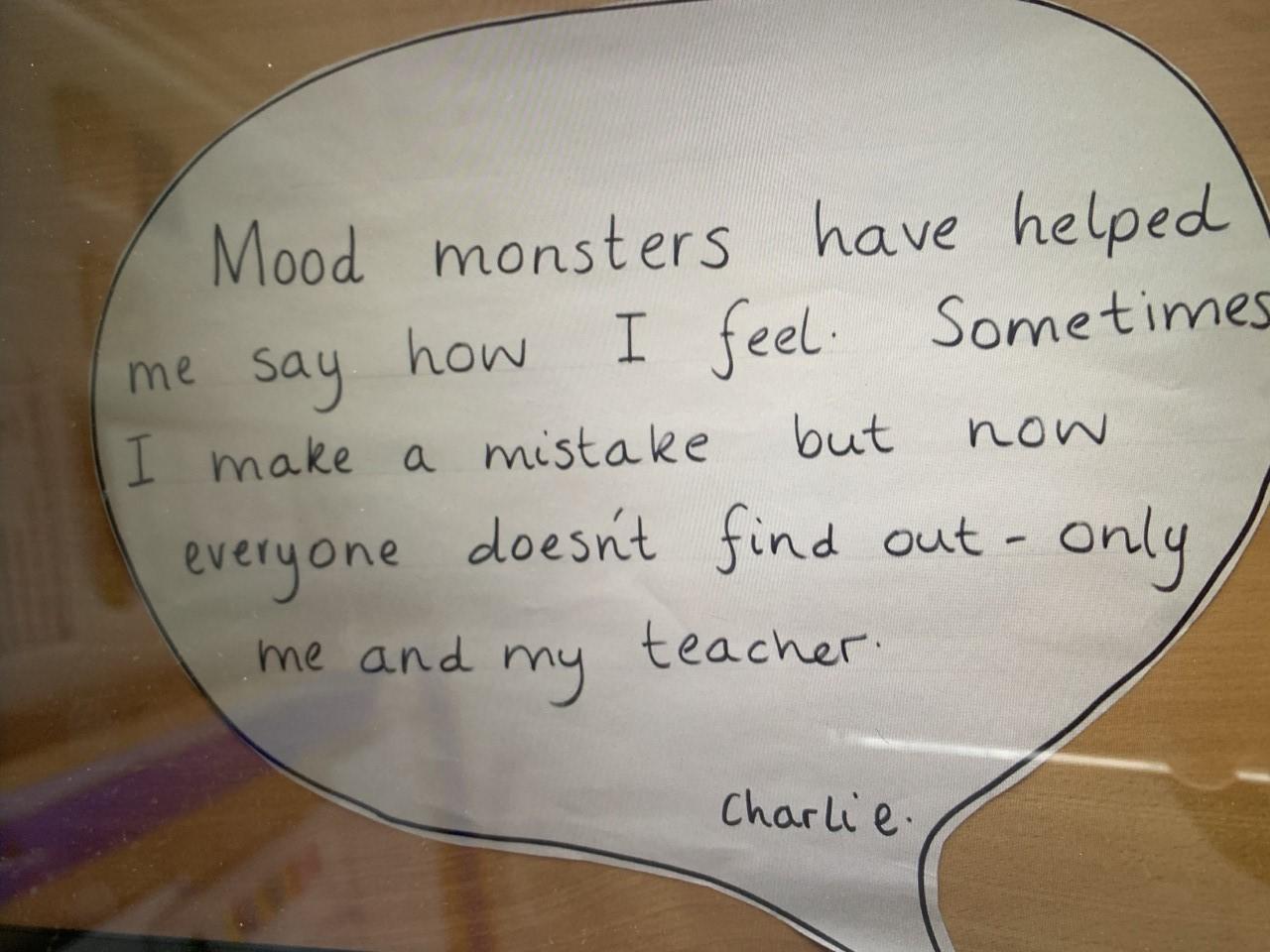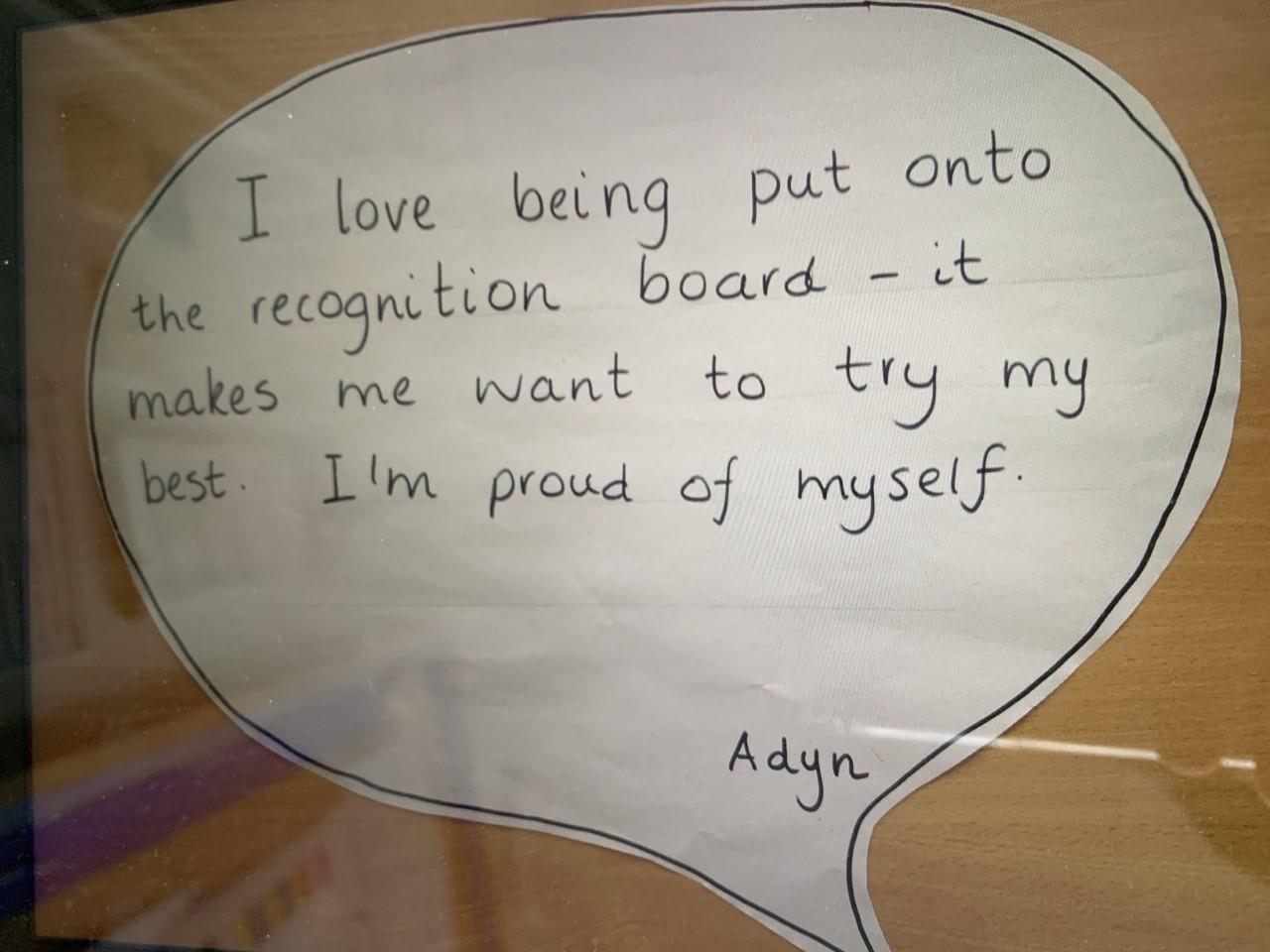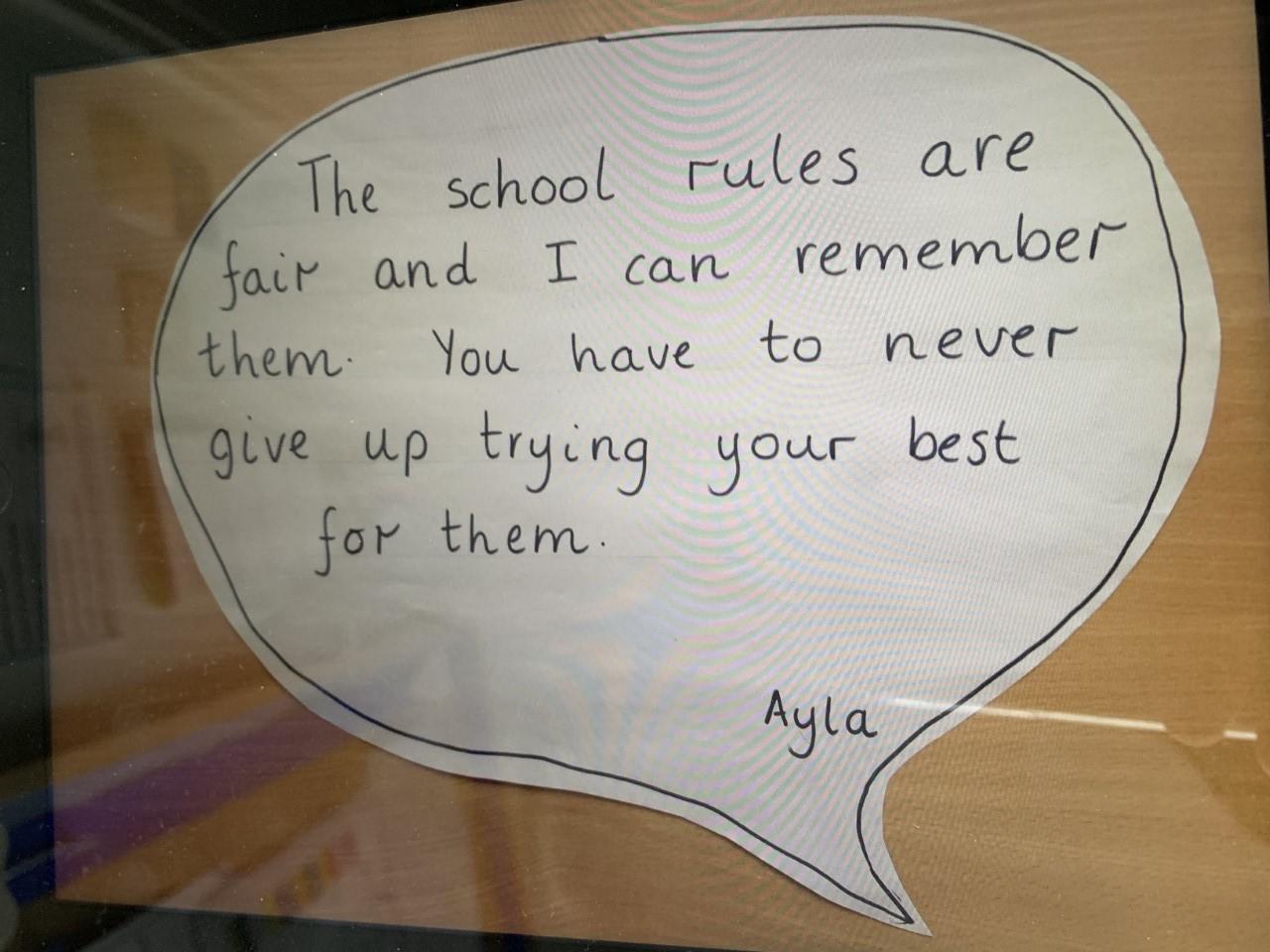Anti-Bullying & Behaviour and Regulation
Behaviour and Regulation at John T. Rice Infant school
At John T. Rice Infant and Nursery School, we believe that being fair is not simply about treating everyone the same (equality), but about ensuring that every child receives the support and resources they need to thrive (equity). We understand that every behaviour a child demonstrates is a form of communication, reflecting their needs, feelings, or experiences.
Our staff have all received specialist training in attachment and trauma from the Educational Psychologist team in Nottinghamshire. As a result, we are proud to be recognised as an Attachment and Trauma Friendly School, committed to providing a nurturing, understanding, and responsive environment for all children.
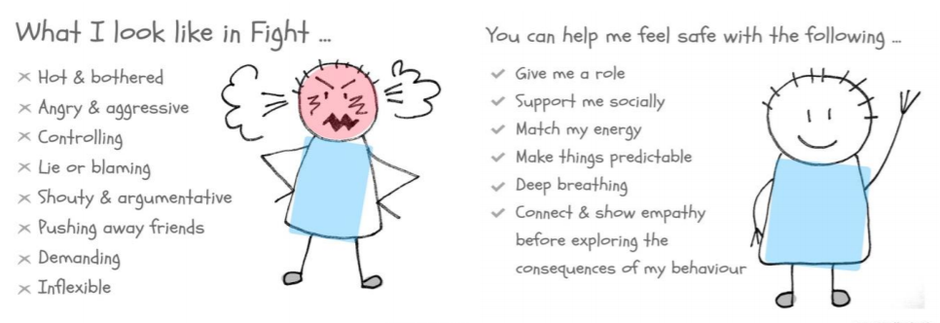
At John T. Rice Infant and Nursery School, we encourage all adults to respond to children in a way that focusses on the feelings and emotions behind their behaviour, rather than the behaviour itself. We recognise that children who display behavioural difficulties are often vulnerable, not troublesome, and it is our responsibility to explore this vulnerability and provide the support they need.
As highlighted in Colebourne Primary School’s Behaviour Policy:
"Thinking of a child as behaving badly disposes you to think of punishment. Thinking of a child as struggling to handle something difficult encourages you to help them through their distress."
In line with this approach, all children in our school are introduced to the Zones of Regulation, a programme designed to develop awareness of feelings, energy levels, and alertness, while teaching a variety of tools and strategies for self-regulation, self-care, and overall well-being. The programme provides a simple, visual framework to help children identify and understand their emotions, sorting them into four colour-coded Zones—each representing feelings that are natural and expected in life.
By learning about their Zones, children gain the skills to recognise their emotions and use practical strategies to manage them effectively. The clear language and visual structure of the Zones of Regulation make the complex skill of emotional regulation accessible to both learners and the adults who support them. Each classroom displays the Zones prominently, and staff use this common language to help children make sense of their feelings, develop coping strategies, and build resilience.
https://zonesofregulation.com/index.html#
At John T. Rice Infant and Nursery School, relationships come first. Our ethos is built on fostering strong, positive connections between staff, children, and their parents or carers. We believe that a supportive and inclusive school culture is essential, one that promotes respect, belonging, and a sense of value for every member of our community. By prioritising these relationships, we create an environment where children feel safe, supported, and inspired to learn and grow.
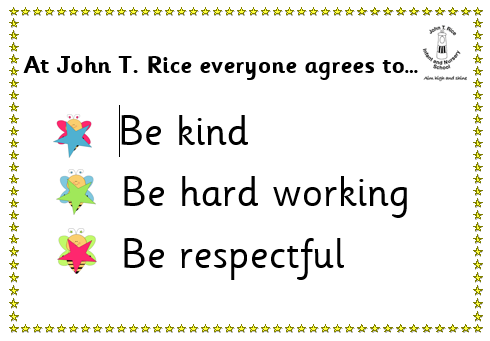
Recognition boards & Mood monsters
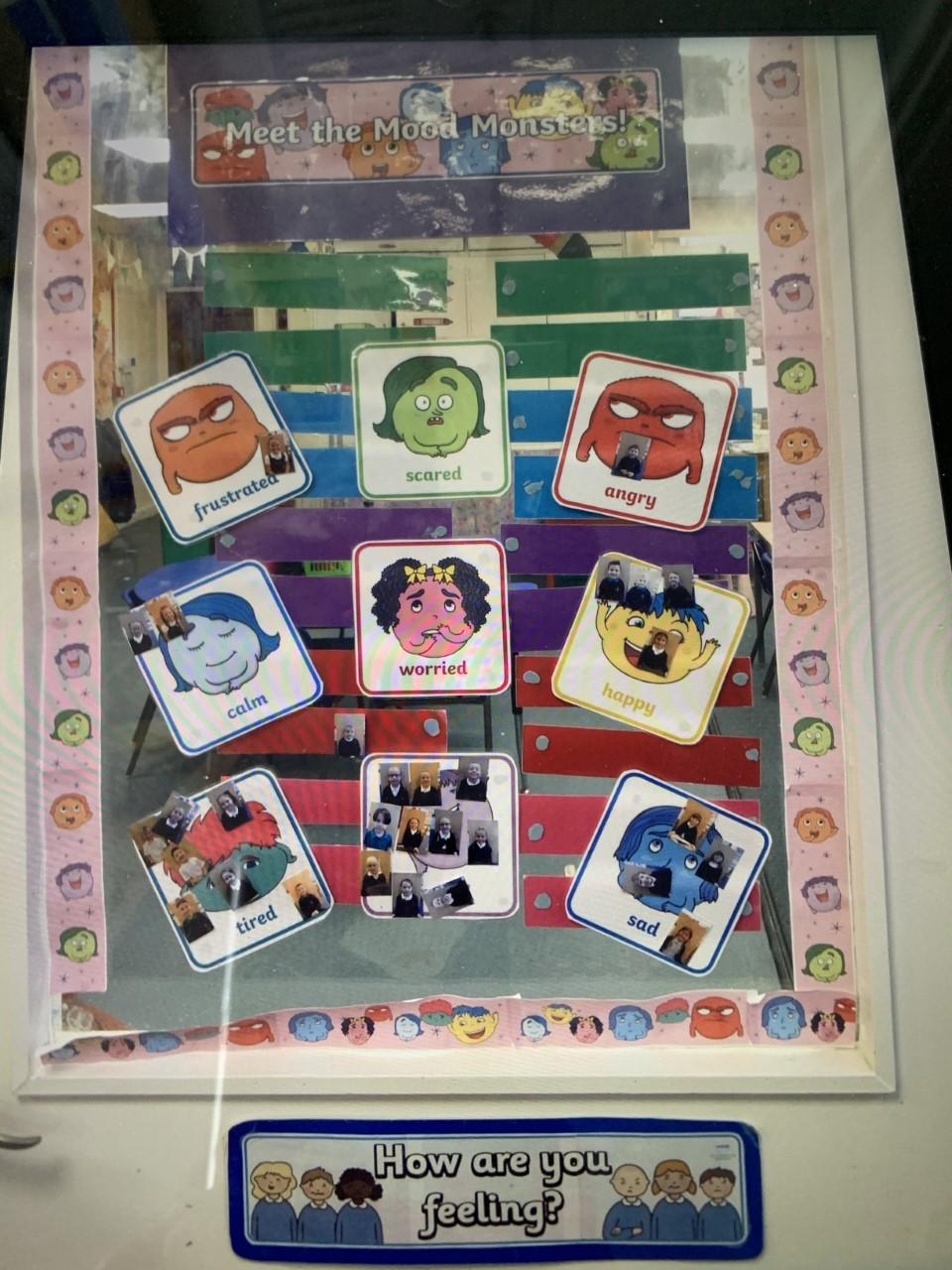
What some of our children feel about our Behaviour & Regulation policy
Anti-Bullying at J.T.R
Promoting Inclusion and Tackling Bullying
At John T. Rice Infant and Nursery School, we are proud to be a fully inclusive community. Our staff, pupils, and families work together to promote positive behaviour and a caring, respectful environment for all.
We have partnered with the Anti-Bullying Alliance and are proud holders of the ‘All Together Against Bullying’ award at Silver level. This reflects our commitment to creating a safe and supportive environment where every child feels valued and respected.
We place great importance on helping children understand what bullying is, how to recognise it, and what to do if they encounter it. To support this, we have produced a child-friendly leaflet explaining bullying, which you can find below.
All pupils participate in Anti-Bullying Week, sharing their learning with their families and reinforcing the importance of kindness and respect. Anti-bullying is also a regular theme in assemblies throughout the year, helping children develop a deep understanding of bullying and the strategies to respond to it effectively.


